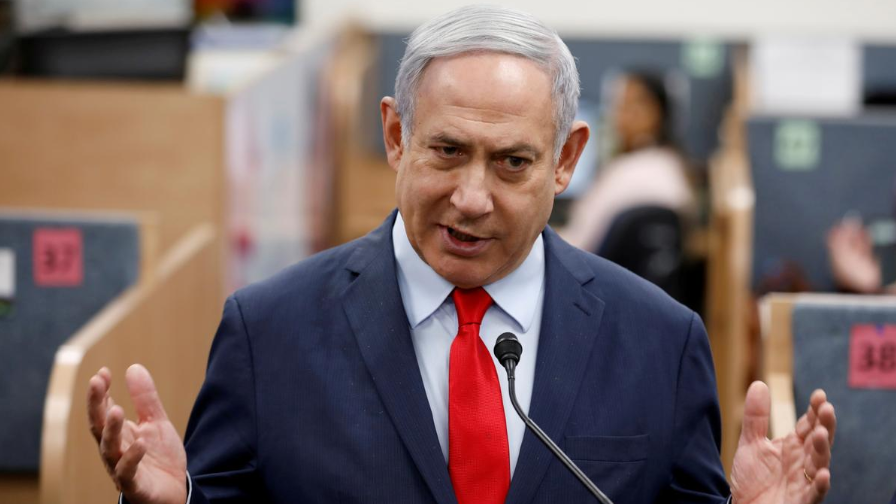All Israelis should wear face masks while in public as a precaution against the coronavirus, Prime Minister Benjamin Netanyahu said on Wednesday.
The recommendation came two days after the health ministry said it was preparing to issue orders that Israelis mask their noses and mouths when in public places.
Israel's position was clarified as experts around the world began reconsidering whether to recommend wearing masks. One of the biggest concerns for not doing so is to ensure a healthy supply of masks for medical workers.
While the World Health Organization stood by its position in discouraging the use of masks by members of the public, the U.S. Centers for Disease Control and Prevention is reportedly re-examining its stance, making it possible for the group to reverse the previous suggestion that dissuaded ordinary citizens to wear masks.
Stressing the length Israelis should take to prevent the virus from spreading, Netanyahu said upcoming Jewish, Muslim and Christian holidays should be marked only with immediate family.
In televised remarks, Netanyahu also announced curbs on movement around an ultra-Orthodox Jewish town that has experienced a disproportionately large outbreak.

Israel has taken stringent measures to try to halt the spread of the virus, after recording more than 6,000 cases. At least 25 Israelis have died of COVID-19, according to Health Ministry data.
"We ask you, citizens of Israel, all of you, to wear masks in the public sphere," Netanyahu said in televised remarks, adding that people could improvise "with a scarf or any other facial covering" in the absence of factory-produced masks.
Increasingly tight restrictions have largely confined Israelis to their homes, forcing businesses to close and causing unemployment to skyrocket to 24.4 percent.
On Monday, Netanyahu and Finance Minister Moshe Kahlon said Israel would spend 80 billion shekels (22 billion U.S. dollars) to help the economy weather the crisis and predicted a gradual return of business activity after the Passover holiday from April 8-15.
Netanyahu on Wednesday said the government would give Israeli families 500 shekels per child, up to a maximum of four children. The elderly would also receive 500 shekels, Netanyahu said, terming all the payments a "Passover gift."
Those stipends would cost the state a total of 1.5 billion shekels, public broadcaster Kan estimated.
Netanyahu also said Israel's majority Jews must mark Passover "with the nuclear family only," adding that including elderly relatives in celebrations "would be to endanger them".
Those same restrictions apply to Christians and Muslims, Netanyahu said, who make up most of Israel's 21 percent Arab minority. They will mark Easter and the beginning of Ramadan, respectively, later this month.
Israeli authorities will also tighten curbs on movement around Bnai Brak, an ultra-Orthodox Jewish town near Tel Aviv, which the Channel 12 TV news on Wednesday projected may account for as many as 30 percent of the coronavirus cases nationwide.
"We have decided to reduce to the minimum necessary the access and egress from the city," Netanyahu said, while adding that residents would still be allowed to move around within the city if required.
Israeli officials describe the ultra-Orthodox as especially prone to contagion because their districts tend to be poor and congested, and in normal times they are accustomed to holding thrice-daily prayers with often large congregations. Some ultra-Orthodox rabbis have also cast doubt on the coronavirus risk.
(With input from Reuters)
(Cove image: Israeli Prime Minister Benjamin Netanyahu gestures as he delivers a statement during his visit at the Health Ministry national hotline, in Kiryat Malachi, Israel March 1, 2020. /Reuters)